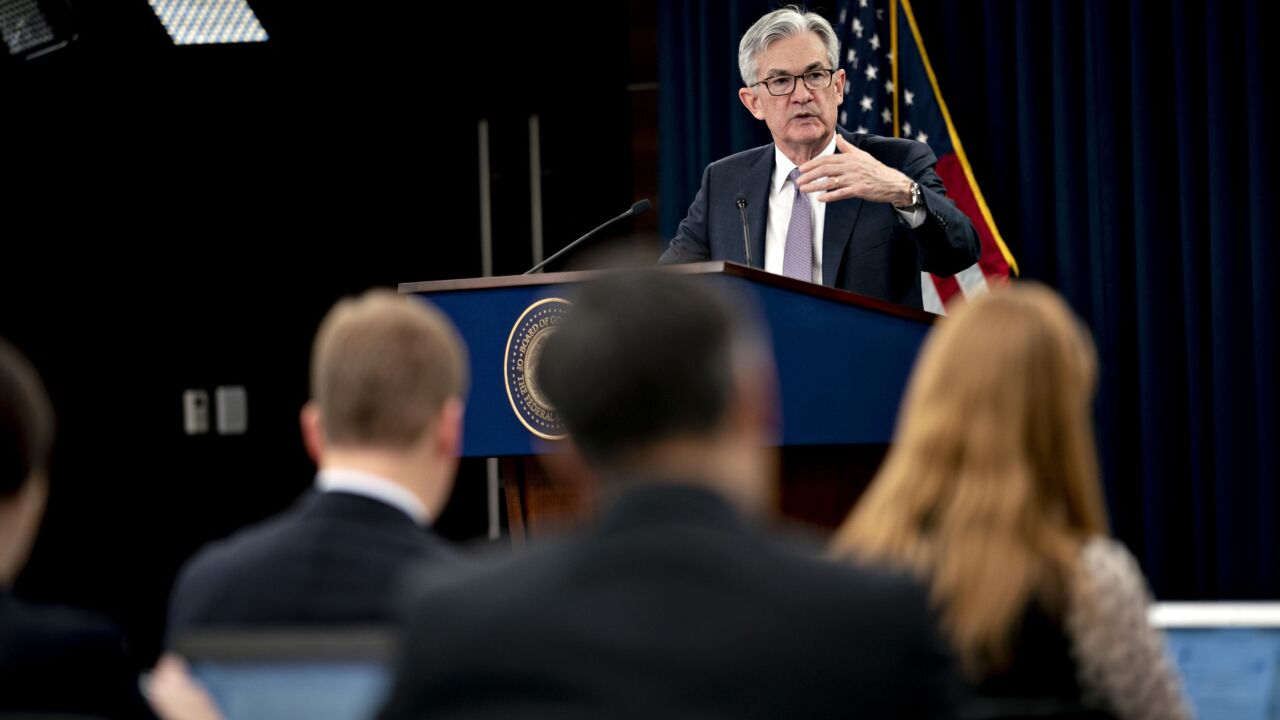The year has begun well for the domestic Australian mortgage-backed sector, with a rush of deals worth more than A$3.5 billion (US$2.2 billion), an interesting technical innovation and new credit ratings that should save at least three issuers some basis points off their trading spreads.
A key theme to have emerged is the sheer diversity of funding sources within reach of Australian issuers: nearly half the deals in terms of value have targeted the domestic market. While it is premature to suggest that a trend might be developing, the high proportion of domestic issuance represents a sharp divergence from the pattern established during the last two years when the volume of Australian MBS transactions was weighted towards the European and global markets.
That said, the offshore markets continue to attract the greater share of large, single deals. Australian Mortgage Securities, the non-bank financier owned by ABN AMRO, launched the biggest transaction of the current crop with a US$750 million issue in the Euromarkets, the company's second Euro MBS. The deal was being roadshowed as ASRI went to press.
Bank of Western Australia launched the other major Euro MBS - a US$640 million issue led by Warburg Dillon Read. This was BankWest's first Euro MBS after the bank was forced to abandon its first attempt last August when investors retreated in the face of volatility and concerns about the Y2K issue. The August deal had been valued at US$500 million, and the larger size of the later transaction partly reflects the build-up in BankWest's mortgage inventory.
The Series 2000-1E SWAN Trust consisted of three senior debt tranches rated triple-A by Standard & Poor's, Fitch IBCA and Moody's Investors Service respectively, and an Australian dollar subordinated tranche rated AA-minus/AA by S&P and Fitch.
The US$210 million Class A1 tranche had an average life of one year and priced at 18 basis points over Libor; the US$290 million Class A2 three-and-a-half year notes at 27 basis points over the benchmark, and the US$140 million Class A3 6.2 year notes at 33 basis points over Libor. The A$29.4 million Class B tranche priced at 70 basis points over the bank bill swap rate.
Attention in the domestic MBS market focused on PUMA Finance, the biggest non-bank financier that is managed by Macquarie Bank subsidiary, Macquarie Securitisation. As reported in the previous issue, the A$700 million transaction was PUMA's first onshore deal since June 1997. It was also the domestic market's biggest for nearly four years.
In the event, the deal was oversubscribed and increased to A$750 million, with pricing comfortably at or close to the bottom of its marketed range.
The PUMA Masterfund P-7 offer consisted of three tranches: Tranche 1-F, A$450 million of senior fixed rate debt with a call option exercisable in February 2003; Tranche 2, A$274 million of senior floating rate notes with a weighted average life of 6.9 years; and Tranche 3, A$26 million of subordinated floating rate debt with a 7.5 year WAL.
According to lead manager, Deutsche Bank, the senior tranches - both of which were rated AAA by S&P - priced at 27 and 47 basis points respectively over the bank bill swap rate. The subordinated tranche, rated AA-minus, priced at 70 basis points.
Demand was believed to have been underpinned partly by the deal's structure, which enabled precise targeting of investor preferences, and partly by renewed appetite for structured credit following the expiry of the Y2K phenomenon. On this basis, it seems unlikely that large issues in the domestic market will develop into a sustainable trend.
Other domestic deals to have taken place during February include a A$300 million issue for AMS (see previous issue), a A$157.6 million for Bank of Queensland through its REDS Trust and a A$140 million deal for another Queensland-based institution, First Australian Building Society, through Macquarie Bank's POLAR program.
The BoQ deal, led by Warburg Dillon Read, consisted of A$153 million of AAA-rated Class A notes with a weighted average life of 3.4 years priced at 42 basis points over the 30-day bank bill swap rate. It also includes a A$3.7 million subordinated Class B tranche rated AA- with WAL of 5.9 years priced at 75 basis points over the benchmark.
The First Australian deal consisted of A$37 million of Class A notes with a 0.62 year WAL, priced at 20 basis points over swap; A$51 million of Class A2 notes with 2.19 WAL at 35 basis points over; A$45 million of Class A3 notes with a 5.41 WAL at a margin of 45 basis points; and a A$7 million subordinated tranche with a seven-year WAL at 77 basis points over swap.
Among other developments, SG Australia lead-managed a A$70 million transaction for Queensland-based Wide Bay Capricorn building society, which was the first Australian securitization of a high loan-to-valuation mortgage pool to achieve a AAA-rating.
Credit enhancement was provided by the unusually high proportion of subordinated notes which, at A$19.2 million, accounted for 27.4 per cent of the deal. The senior notes were sold into SG's ACE conduit, with the sub debt being taken on to Wide Bay's balance sheet.
AMS became the first Australasian company to receive a "master loan servicer rating" from S&P ("above average," the second-highest rating), and Fitch IBCA assigned an AA rating to mortgage insurer PMI Mortgage Insurance Ltd. The move was expected to improve the subordinated margins on three MBS programs on which PMI had provided credit enhancement.




